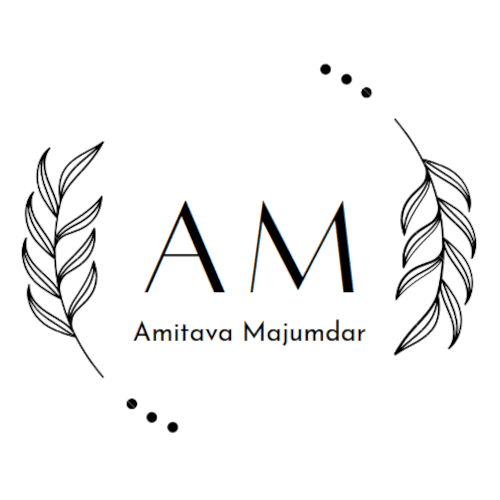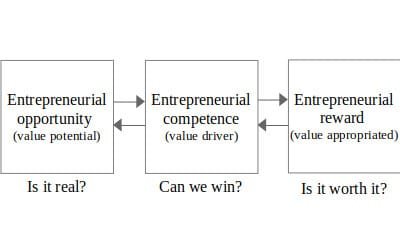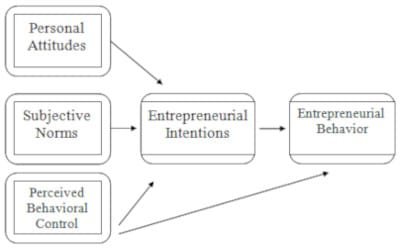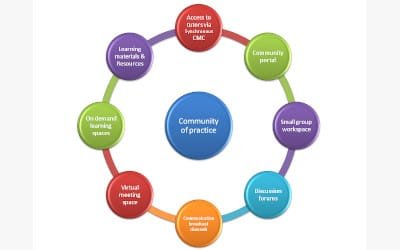Competitive Advantage through the Learning Organisation
Published in 2016

Role of Communities of Practice in Knowledge Transfer and Creation Processes within Organisations.
Learning at the individual level refers to the continuous human process of absorbing and assimilating information and experience and transforming such inputs into knowledge, skill, attitude, and behaviour (Dixon, 2007). It can further be added that learning does not always require classes or courses, even though they can be useful learning tools. It definitely does not require certificates or degrees, even though these have social value that should not be ignored. It does however require various processes and activities like reflection, practice and environmental and social interaction (Evans, et al, 2002). In many cases it does not happen consciously, even though the people who attempt a more conscious and alert approach towards learning tend to achieve greater success in their acquisition of useful knowledge, wisdom and insight (Evans, et al, 2002).
Business firms have traditionally approached the issue of inculcation of learning in their employees from Taylorist perspectives, which assert that particular jobs need to be done in specific ways and that persons engaged in work need to follow job requirements (Garvin, 2003). Individual training, which has for long formed the core of institutional learning, is founded on the assumption that jobs are constant, even as the people who do them are interchangeable (Garvin, 2003). Such premises are however becoming increasingly out of place in a global environment that is relentlessly changing, throwing up surprises, and calling upon organisations to respond wisely, appropriately and swiftly (Gilley & Maycunich, 2000).
Organisational Learning
Recent years have seen the downfall and virtual elimination of numerous once prosperous and stable businesses, because of their inability to respond to changing environmental demands with speed and maturity (Dutta & Crossan, 2005). Much of such organisational inadequacies are attributed to the fact that the members of unsuccessful firms are (a) unmotivated or indifferent in their work, (b) lack the ability and knowledge to take up new jobs, (c) are content to just follow orders, (d) lack real productivity, (e) do not communicate with each other, and (f) tend to put things on hold in the absence of their superiors (Dutta & Crossan, 2005).
Modern day behavioural and organisational experts assert that firms need to approach learning from entirely new perspectives in order to create flexible and responsive organisations that can adapt and respond to environmental alterations and new ideas (Clardy, 2007). Much of organisational learning is focussed on motivating employees to (a) increase their skills and knowledge and (b) share their tacit knowledge with other employees (Greve, 2003). Motivating employees to improve their learning is essential because organisations essentially consist of people who sense, observe, remember and respond (Greve, 2003). They are little more than the actions and results of participating people (Greve, 2003).
The need for constant and productive organisational learning has resulted in the conception of the learning organisation (Marquardt, 2002). It is a concept that is increasingly being adopted in modern day activity and refers to organisations that learn, sustain and support learning amongst their members, encourage information exchange between employees, and create knowledgeable, productive, and responsive workforces (Marquardt, 2002). The increasing emphasis on improvement of organisational learning has resulted in the advancement of a number of academic theories and managerial initiatives for improvement of individual and organisational learning on a constant basis. Argyris and Schön (1996) have forwarded theories of single and double loop learning. Wenger (1998) has provided illustrations of social perspectives of learning through their studies of communities of practice. The concept of the learning organisation has been taken up on a wide scale for experimentation and implementation after the publication of Peter Senge’s (1990) book The Fifth Discipline: the Art and Practice of the Learning Organisation. Organisational learning as per Senge (1990) consists of the practice and implementation of five basic disciplines namely (a) systems thinking, (b) team learning, (c) shared visions, (d) mental models and (E) personal mastery.
Systems thinking refer to the method of viewing the environment by way of wholes and focusing on relationships between the components of a system (Senge, 1990). Systems’ thinking forms the foundation of organisational learning. It helps organisational members to recognise systemic behaviour and work with rather than against systems (Senge, 1990). Team learning occurs when people work on something together, engage in honest conversations, and learn from each other (Senge, 1990). Shared vision occurs when all organisational members understand the purpose of an organisation, become committed to the achievement of organisational vision and grasp their individual organisational roles (Senge, 1990). Mental models refer to deep beliefs that employees hold about the working of the world (Senge, 1990). Personal mastery involves the identification of unique life purposes and how people go about fulfilling such purposes (Senge, 1990).
Whilst experts are unanimous on the importance of improving individual and organisational learning, their implementation often gets hindered because many organisational managers are preoccupied with their routine affairs, bureaucratic in their approach, reluctant to train, tightly supervised, and have too many personal agendas.
Conclusion
Whilst the concept of organisational learning is clear enough, putting it into practice is a complex task. Organisational leaderships need to view learning as a sustainable resource and work towards inculcating a culture of learning as an ongoing process for achievement of success in this area.
References
Argyris, C. & Schon, D., 1996. Organisational learning II: Theory, method and practice, Reading, Mass: Addison Wesley.
Chawla, S., & Renesch, J., 2006. Learning Organizations: Developing Cultures for Tomorrow’s Workplace, 1st edition, UK: Productivity Press.
Dixon, N., 1999. The Organizational Learning Cycle, How we can learn collectively, London: Gower Publishing Company.
Garvin, D. A., 2003. Learning in Action, a guide to putting the learning organization to work, Boston, Mass.: Harvard Business School Press.
Marquardt, J. M., 2002. Building the Learning Organization: Mastering the 5 Elements for Corporate Learning, 2nd edition, Mountain View, CA: Davies-Black Publishing.
Morgan, H., Rosenberg, J. M., & Conner, M., 2004. Leading Organizational Learning, 1st edition, San Francisco: Jossey-Bass.
Nokia, 2010, Nokia- Nokia on the Web, Available at: www.nokia.com/ (accessed June 01, 2010).
Nonaka, I. & Takeuchi, H., 1995. The Knowledge-Creating Company, New York: Oxford University Press.
Senge, P., 1990. The Fifth Discipline: The Art and Practice of the Learning Organization, New York: Doubleday.
Wenger, E., 1998. Organizational learning; Social learning, UK: Cambridge University press.
More From This Category
Innovation & Change are Central to Value Creation
The achievement and effective use of knowledge is widely accepted by contemporary managements, theoInnovation, as a concept, has been examined and developed over time, which, in turn, has resulted in the creation of several definitions. Innovation entails the conversion of an idea into a solution that results in addition to value from the perspectives of customers. Customers are unlikely to change their buying behaviour if an innovative product does not result in value addition for them. Innovation involves the application of useful and novel ideas; creativity comprises the seed of innovation but is likely to remain in the realm of idea generation until and unless it is applied and scaled suitably).
Organisational change constitutes the process of alteration of organisational strategies, processes, procedures, technologies, and culture.rists and researchers to be the chief source of competitive advantage of modern day business organisations.
Theories of Entrepreneurial Opportunity
The study of entrepreneurship isn’t just about admiring successful entrepreneurs from afar. It’s about digging deep into why they do what they do, when they do it, and how it all plays out in the end. It’s like peeling back the layers of an onion to uncover the juicy bits inside.
And to tackle these burning questions, we’ve got two heavyweights in the ring: the Discovery Theory and the Creation Theory. These bad boys are all about figuring out why humans do what they do and how it helps them achieve their goals.
Behavioural Theories and Entrepreneurship
Management and behavioural experts have delved into entrepreneurship extensively, and there’s a whole body of work on the topic. Lazear paints a broad picture, defining an entrepreneur as someone who starts a new venture. But that definition lumps together someone opening a small local business with giants like Jeff Bezos or Steve Jobs. Sure, there’s some truth there, but it’s tricky to draw general conclusions about entrepreneurship because it comes in so many shapes and sizes. Entrepreneurship research tackles big questions like why some people dive into entrepreneurial ventures while others with similar talents and energy don’t, and why some spot entrepreneurial opportunities while others miss them.
Tesla: Critical Evaluation of Corporate Social Responsibility and Global Innovation Management
Established in 2003, Tesla Motors, the US-headquartered manufacturer of electric vehicles, solar panels and solar roof tiles, has become globally famous for its pioneering, innovative and entrepreneurial efforts in the development of electric vehicles and renewable energy. The firm has grown phenomenally in the last two decades and is now one of the most valuable corporations in the world. Its CEO Elon Musk is currently one of the the wealthiest persons in the world
Communities of Practice in Knowledge Transfer
The achievement and effective use of knowledge is widely accepted by contemporary managements, theorists and researchers to be the chief source of competitive advantage of modern day business organisations.
A Unique Entrepreneurial Path: Sir Richard Branson
This short report aims to analyse the area of entrepreneurship, with specific reference to the entrepreneurial abilities, skills, and success of Sir Richard Branson.







0 Comments